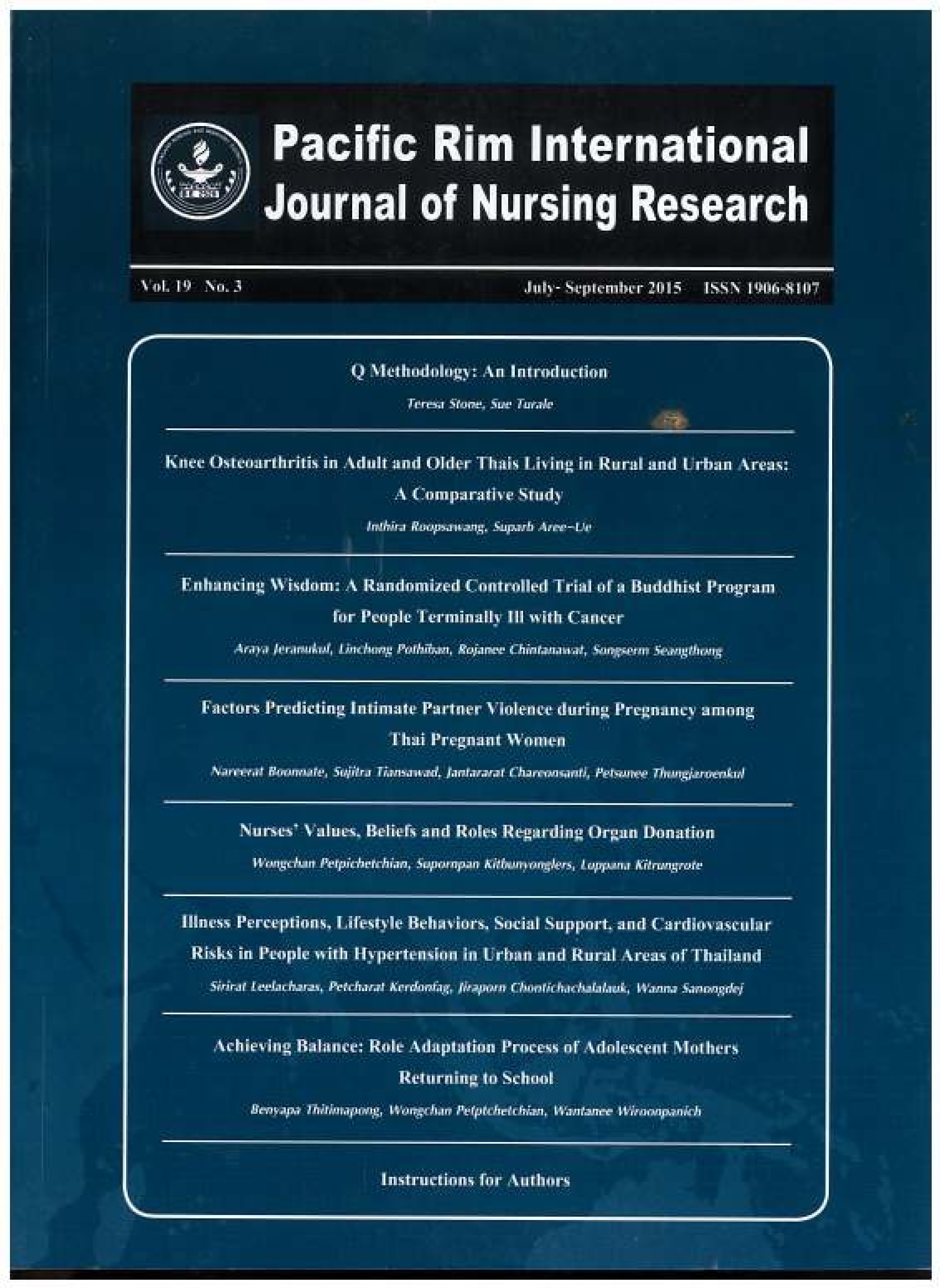Factors Predicting Intimate Partner Violence during Pregnancy among Thai Pregnant Women
Keywords:
Intimate partner violence, Pregnancy, Pregnant women, Predictive study, Risk factors, Thai womenAbstract
Intimate partner violence during pregnancy occurs across both developed and developing countries. This violence is of high concern because it leads to adverse effects on maternal health and newborn outcomes, as well as the general wellbeing of the woman and family. This cross-sectional study aimed to examine factors predicting intimate partner violence during pregnancy in Thailand. Two hundred and thirty Thai pregnant women, attending the prenatal clinic at a university hospital in northern part of Thailand were purposively selected to participate. Six questionnaires were used to collect data: a demographic data form, the Index Spousal Abuse, the Revised Rosenberg Self-Esteem Scale, the A-Z Stress Scale, the Revised Multidimensional Scale of Perceived Social Support, and the Kansas Marital Satisfaction Scale. Descriptive statistics and binary logistic regression were employed to analyze data.
Results revealed that the prevalence of intimate partner violence during pregnancy was 11.7%, while physical, non-physical and both physical and non-physical violence accounted for 3.5%, 4.3%, and 3.9%, respectively. Binary logistic regression analysis revealed that stress and marital satisfaction were significant predictors of IPV occurrence during pregnancy. These two co-predictors could explain 26.3% of the total variance for IPV during pregnancy. The findings of the study enable health care providers to understand the risk factors of intimate partner violence during pregnancy. This finding suggests that the marital relationship should be reinforced during pregnancy. The provision of counseling services should serve pregnant women that experience stress. Furthermore, IPV screening should be planned to identify cases and offer appropriate advice and referrals to support services at the prenatal clinic
Downloads
Published
How to Cite
Issue
Section
License
Copyright: The Pacific Rim International Journal of Nursing Research, Thailand Nursing & Midwifery Council has exclusive rights to publish, reproduce and distribute the manuscript and all contents therein.








.png)



